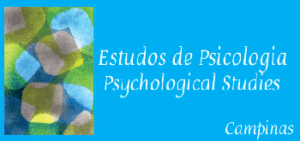Thames Borges, PhD psychologist, researcher at INSERM- Méthode et Cultures, Paris, France
 In view of the growing current migration flows, psychologists Thames Borges and Cigala Peirano and psychiatrist Marie Rose Moro, published an article in the journal Estudos de Psicologia (Campinas, Vol. 35, No. 2) under the title “The transcultural clinic: Caring of parenthood in exile”. From the report of a clinical service, they present a different framework of work, having as theoretical references transcultural psychiatry and ethnopsychoanalysis. The transcultural clinic is anchored in the concepts of complementarity, psychic universality and cultural decentralization developed by Georges Devereux (1970) and readapted in the clinic conducted by Tobie Nathan and Marie Rose Moro (1989). Since uprooted families, when they are in a new land, can lose their parameters to understand and deal with suffering, they propose a transcultural reading of the symptom, associating traditions, representations and cultural etiologies with a specific therapeutic technique. In this, the actions of care undertaken, intend to encompass ontological aspects, through the search of representations of the self, its origin and identity; as etiologic, looking for the sense attributed to any internal disorders. Thus, this framework requires alternative approaches to the possibilities of a transcultural reading of the suffering, understanding that culture brings us a specific form of codification of the experiences lived by individuals. While raising important questions, such as: when people travel and change their culture, how do they change their internal codes? How is suffering understood between two or more cultures?
In view of the growing current migration flows, psychologists Thames Borges and Cigala Peirano and psychiatrist Marie Rose Moro, published an article in the journal Estudos de Psicologia (Campinas, Vol. 35, No. 2) under the title “The transcultural clinic: Caring of parenthood in exile”. From the report of a clinical service, they present a different framework of work, having as theoretical references transcultural psychiatry and ethnopsychoanalysis. The transcultural clinic is anchored in the concepts of complementarity, psychic universality and cultural decentralization developed by Georges Devereux (1970) and readapted in the clinic conducted by Tobie Nathan and Marie Rose Moro (1989). Since uprooted families, when they are in a new land, can lose their parameters to understand and deal with suffering, they propose a transcultural reading of the symptom, associating traditions, representations and cultural etiologies with a specific therapeutic technique. In this, the actions of care undertaken, intend to encompass ontological aspects, through the search of representations of the self, its origin and identity; as etiologic, looking for the sense attributed to any internal disorders. Thus, this framework requires alternative approaches to the possibilities of a transcultural reading of the suffering, understanding that culture brings us a specific form of codification of the experiences lived by individuals. While raising important questions, such as: when people travel and change their culture, how do they change their internal codes? How is suffering understood between two or more cultures?
In attempting to approach these issues more effectively, it is essential that the psychotherapist does not impose an adequate framework solely on his own culture, but always considers the symbolic elements and objects belonging to the families with whom he works. Thus, this mode of care not only requires the analysis of affective transference and counter-transference but also cultural transference and counter-transference. Considering that the therapists themselves also carries their own culture of origin, the authors have opted for a group setting, which they deem to be a facilitator in order to enable a greater openness to the otherness of the patient. The transcultural clinic is therefore a psychotherapeutic practice that uses the reading of cultural theories as a means to understand and contain the emotional imbalances that affect people living in contexts of migration and uprooting. Thus, through a clinical investigation they seek the improvement of the ways of taking care of the psychic suffering.
Refererence
DEVEREUX, G. Essais d’ethnopsychiatrie générale. Paris: Gallimard, 1970.
NATHAN, T., MORO, M. R. Enfants de djinné. Evaluation ethnopsychanalytique des interactions précoces. In: LEBOVICI, S.; MAZET, P.; VISIER, J.-P. (Eds.). Evaluation des interactions précoces. Paris: Eschel, 1989. p. 307-340.
To read the article, access
BORGES, T. W., PEIRANO, C. and MORO, M. R. A clínica transcultural: cuidando da parentalidade no exílio. Estud. psicol. (Campinas) [online]. 2018, vol.35, n.2, pp.149-158. ISSN 0103-166X. [viewed 3 September 2018]. DOI: 10.1590/1982-02752018000200004. Available from: http://ref.scielo.org/zg4xvk
External links
Estudos de Psicologia (Campinas) – ESTPSI: www.scielo.br/estpsi
Le Portail du Centre Babel: https://www.transculturel.eu
L’autre: https://revuelautre.com
Como citar este post [ISO 690/2010]:


















Recent Comments